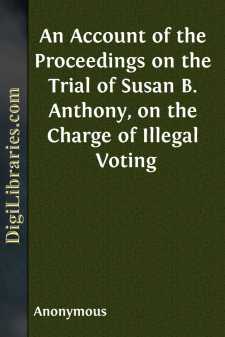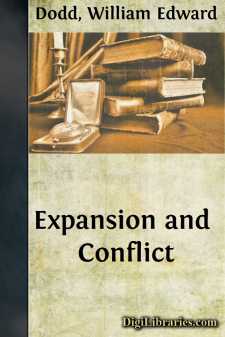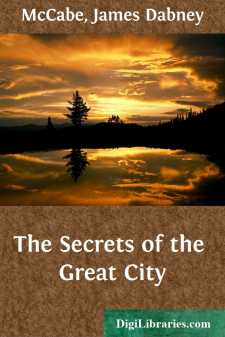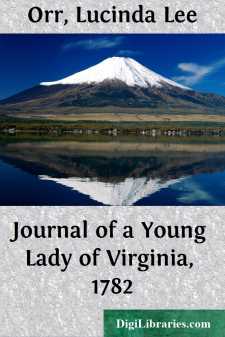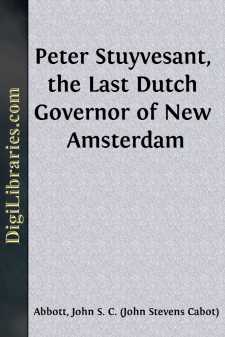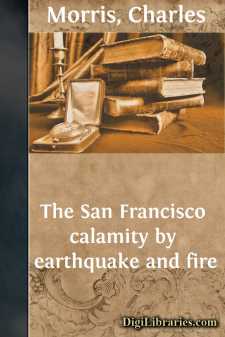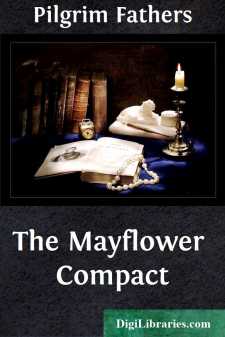History
- Africa 30
- Americas (North Central South West Indies) 50
- Ancient 68
- Asia 58
- Australia & New Zealand 8
- Canada 41
- Caribbean & West Indies 1
- Civilization 20
- Eastern Europe 12
- Europe 310
- Expeditions & Discoveries 60
- General 77
- Historical Geography 1
- Jewish 9
- Latin America 3
- Medieval 8
- Middle East 13
- Military 248
- Revolutionary 8
- Study & Teaching 5
- United States
- Western Europe 56
- World 13
United States Books
Sort by:
by:
Anonymous
PREFACE. At the election of President and Vice President of the United States, and members of Congress, in November, 1872, Susan B. Anthony, and several other women, offered their votes to the inspectors of election, claiming the right to vote, as among the privileges and immunities secured to them as citizens by the fourteenth amendment to the Constitution of the United States. The inspectors, Jones,...
more...
PREFACE When I was a boy, some years before I obtained my appointment in the navy, I spent many of those happy hours that only childhood knows poring over the back numbers of a British service periodical, which began its career in 1828, with the title Colburn's United Service Magazine; under which name, save and except the Colburn, it still survives. Besides weightier matters, its early issues...
more...
PREFACE The purpose of this volume is to show the action and reaction of the most important social, economic, political, and personal forces that have entered into the make-up of the United States as a nation. The primary assumption of the author is that the people of this country did not compose a nation until after the close of the Civil War in 1865. Of scarcely less importance is the fact that the...
more...
CHAPTER I. Original Compromises between the North and the South embodied in the Constitution.—Early Dissatisfaction with National Boundaries. —Acquisition of Louisiana from France by President Jefferson.— Bonaparte's Action and Motive in ceding Louisiana.—State of Louisiana admitted to the Union against Opposition in the North.— Agitation of the Slavery Question in Connection with the...
more...
THE CITY OF NEW YORK. The City of New York is the largest and most important in America. Its corporate limits embrace the whole of Manhattan Island, on which it is situated, and which is bounded by the Hudson, the East and Harlem rivers, and by Spuyten Duyvil creek, which last connects the Harlem with the Hudson. Being almost entirely surrounded by deep water, and lying within sight of the ocean, and...
more...
by:
Lucinda Lee Orr
"Wilderness" Residence of John Grymes, Esq., who married Miss Fitzhugh, of Eagle's Nest. One of this family was Gen. Robert Lee's grandmother. I hear you say, "The Wilderness! where in the world is that, Lucy?" It is the name of this place. I can't say I was much struck with the situation of the House; but they are as kind, good People as I ever saw. Sept. 17.To-day is...
more...
CHAPTER I. Abraham Lincoln expired at twenty-two minutes after seven o'clock on the morning of April 15, 1865. Three hours later, in the presence of all the members of the Cabinet except Mr. Seward who lay wounded and bleeding in his own home, the oath of office, as President of the United States, was administered to Andrew Johnson by Chief Justice Chase. The simple but impressive ceremony was...
more...
CHAPTER I. DISCOVERY OF THE HUDSON RIVER. The Discovery of America.—Colonies.—The Bay of New York.—Description of the Bay.—Voyage of Sir Henry Hudson.—Discovery of the Delaware.—The Natives.—The Boat Attacked.—Ascending the Hudson.—Escape of the Prisoners.—The Chiefs Intoxicated.—The Return.—The Village at Castleton.—The...
more...
by:
Charles Morris
CHAPTER I. San Francisco and Its Terrific Earthquake. On the splendid Bay of San Francisco, one of the noblest harbors on the whole vast range of the Pacific Ocean, long has stood, like a Queen of the West on its seven hills, the beautiful city of San Francisco, the youngest and in its own way one of the most beautiful and attractive of the large cities of the United States. Born less than sixty years...
more...
by:
Pilgrim Fathers
In the name of God, Amen. We, whose names are underwritten, the Loyal Subjects of our dread Sovereigne Lord, King James, by the Grace of God, of Great Britaine, France, and Ireland, King, Defender of the Faith, c. Having undertaken for the Glory of God, and Advancement of the Christian Faith, and the Honour of our King and Country, a Voyage to plant the first colony in the Northerne Parts of Virginia;...
more...


